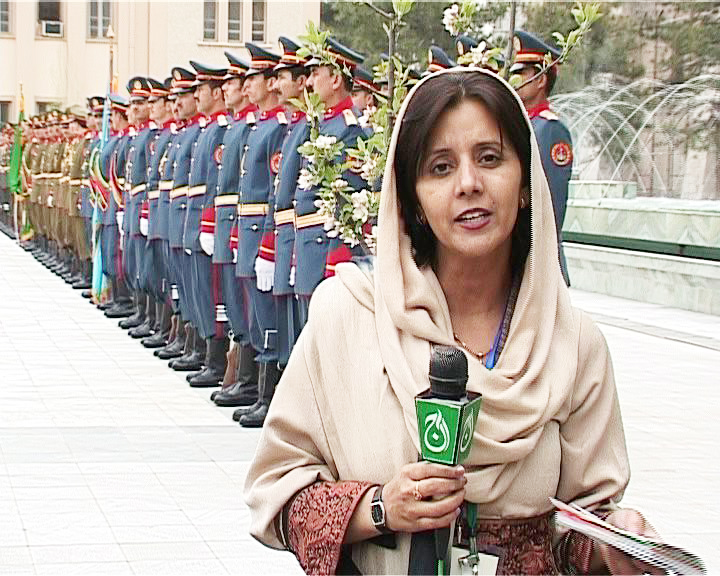
By Pamela Burke
UPDATE: 5/2/11 with Osama Bin Laden’s Death
EYE: Are you shocked at the killing of Bin Laden?
FARZANA ALI: Nobody would believe it, but history shows that Al-Qaida’s top leaders tried to hide themselves in such safer urban places. Almost three months earlier Umar Patek, alleged Bali bombing plotter, was captured from this city but the news was made public only in March. Likewise, the city is on the Silk Route, a road to China. So we journalists are expecting more news like this in the future.
EYE: Are people surprised that he was living in Abbottabad?
FARZANA ALI: Yes, of course. There is an atmosphere of uncertainty throughout the country’s urban areas.
EYE: Will this make your country a safer place?
FARZANA ALI: As far as Al-Qaeda, yes. I think they are no more of a threat, but the situation now is different. We have a lot of problems regarding extremism not terrorism. Likewise we have a lot of geo-economic, geo-strategic, and geo-political crises added by the offspring of Al-Qaeda. So I expect worst days coming ahead.
EYE: Do you see a change now in the power of the Taliban and Al-Qaeda in your country?
FARZANA ALI: Yes, but who will fill the vacuum is the big question.
_____________________________________________________
When journalist Farzana Ali leaves her home in the morning, she says she doesn’t know whether she will see her family again. The territory she covers in Pakistan is considered one of the most dangerous in the world.
“I want to be a hope for present and future female journalists as well as a symbol of courage…” Farzana Ali
She has seen it all reporting for newspapers and television in this northwestern region for the past 14 years. From the caves in Kotkai where the head of the suicide bombers is reported to have lived to Tank and South Waziristan covering the case of a future bride who was allegedly killed for cutting her hair, she has traveled all over in search of important stories.

Farzana reached out to The Women’s Eye recently after reading the website. She thought it might connect the women of her region to the outer world. Her desire is that her voice be heard, and we wanted to listen. Here is our candid exchange…
EYE: You live and work as a journalist in a very volatile region where the potential for violence and bombings is very real. How dangerous is it, and how do you deal with the situation on a daily basis?
FARZANA ALI: What should I say about the level of violence as we have even lost the sense of it. For a common U.S. citizen it’s like a city where every day is 9/11. I leave home saying good-bye to my husband and son as if I am looking at them for the last time, and they would receive my dead body any time from the hospital.
Likewise every morning at home I watch things as I would never see them again in my lifetime and imagine how it would be when I would be no more.

EYE: You received an award recently for best female TV journalist by the provincial government there on International Women’s Day. The next day you were covering a suicide attack at a woman’s funeral in Peshawar. How do you report on these stories without putting yourself in danger?
FARZANA ALI: It was the funeral of a lady who was a sister of a volunteer fighter against the Taliban. A suicider blew himself up while the funeral procession was about to conclude. Yes, I am putting my life at risk while covering the story.
But what should I do? There are fewer female reporters in the field. I can not leave this missionary profession. I have been told by many of my friends around the globe and even in Islamabad to shift to a safer place. But is there any safer place in the world?
“My duty is to tell the truth in this extremist society…”
Not only the journalists but even the progressive national political figures, the teachers, social workers, lawyers, and scholars… nobody in Khyber Pakhtoonkhwa and Tribal Area is safe. Has anybody left their profession? My duty is to tell the truth in this extremist society and that as a female is much greater than my individual life. Look at Benazir Bhutto.
I want to be hope for present and future female journalists as well as a symbol of courage for all global women.
EYE: What does winning the journalism award mean to you? You dedicated it to journalists who have lost their lives in the line of duty.
FARZANA ALI: It means that there still are people here to publicly recognize the efforts of women. It is just a piece of metal, but for me it’s an honor and a realization by the government of Khyber Pakhtoonkhwa led by the Awami National Party which by itself is suffering the most.

I dedicated it to the journalists with the same passion as I have who lost their lives in the line of duty to tell their families and community that I haven’t forget them. They were deserving such awards in their lifetime.
EYE: Tell me about your background. You were the only reporter at the recent Af-Pak peace and trade talks from Peshawar and one of the few female correspondents. Do you think it is more difficult for women to cover the news than men in your country?
FARZANA ALI: I started my career as a sub-editor for a local Peshawar based daily, then worked as a reporter, special reporter and editor of the special Women’s Edition and Weekly Magazine. I then joined Aaj News, a Karachi based TV channel where I work now.
I am a TV reporter for its Peshawar Bureau. As a TV journalist, it’s a must that if you are talking about the Bajaur Agency that you have to be in Bajaur Agency. I traveled to all these Af-Pak bordering areas during the war on terror.

I have also travelled to Khyber Agency, Dir, and Momand Agency to work on social issues involving internally displaced persons. I covered water shortages during the historic flood in the north where I also did live talk shows.
I think reporting as a woman is more productive. They are more supportive and committed to their sources and organization. In our society where women are not allowed to talk to any stranger, I sometimes get a scoop by visiting females inside their homes. There are certain areas where I face difficulties, but my brain helps me a lot in solving the issues.
It is, of course, difficult for me to do live reporting from the spot as males are doing. But the danger and threat over here is for everybody and particularly to our womenfolk. I never liked to be known as a female or lady reporter. The basic thing is to reveal the truth and inform the subjects whether they are male or female. So to me a reporter is a reporter; it has nothing to do with gender.
“By reporting and highlighting these stories, I always find myself a catalyst in resolving issues.”
EYE: What is it about being a journalist that makes it your passion?
FARZANA ALI: The only purpose is to serve the womenfolk. I found that I have helped thousands of women by just reporting, whether it was about their health, education, finances or any issue. By highlighting these stories, I always find myself a catalyst in resolving issues. Sometimes through my personal contacts with officials I was able to help hundreds of women in the war on terror and particularly in the flood.
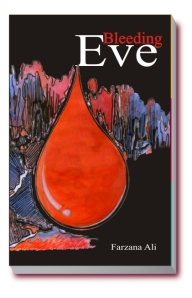 EYE: You are working on a book that’s important to you about ten women who were terrorized for a decade during the war on terror in your country. Tell me about it and why you wanted to write it.
EYE: You are working on a book that’s important to you about ten women who were terrorized for a decade during the war on terror in your country. Tell me about it and why you wanted to write it.
FARZANA ALI: I have finished the basic synopsis of it. It’s based on nine women who suffered during the war and one who was in a dangerous flood. These were the women whose news was reported in the global and local media but not their sufferings.
There was a dancer who was brutally murdered in Swat; a teacher who was gunned down in Bijou; there is a mother who was killed because of charges of prostitution; a social worker who was shot and then finally saved in Bannu hospital; a girl stoned to death in Orakzai Agency; a mother harassed by a social worker during a flood in Nowshehr; a girl publicly whipped in Swat and other stories like this.
But I am writing it in a literary way and mixing the reality and fiction. As I can not report the whole truth, I am trying at least to report some of it by terming it fiction. Title of the book is BLEEDING EVE.
EYE: You want to connect women living on both sides of the Af-Pak Border. Is it possible to get women more involved in policy making?
FARZANA ALI: I think disintegration is not the solution of this region; rather integration might help the region to restore peace and harmony. I am adopting a kind of regional approach to the Af-Pak issue. Also I think that probably Islamabad and Kabul are not sensing the subjects important to women living there.
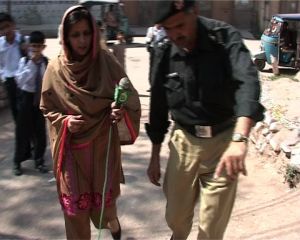
It is just a first step to solve the issues of women living close to the Af-Pak border. I have started meeting with male journalists of those areas to connect me to their female colleagues on the other side of the border.
The first thing is to gather information, addresses, and their contact numbers. I have also met with some of the female journalists in Bhutan while covering the SAARC conference for SAWM (South Asian Women in Media).
EYE: You said you are working on a story about a young girl who was allegedly killed by her fiance for cutting her hair and doing dark make-up to attract men and have a modern look. The photos are too graphic to be shown here. What is the latest on this horrendous crime?
FARZANA: I am still following this story as he is denying the charges in court. Here every minute you get a breaking story and have to run with the bulletins. Yesterday, some extremists painted faces over a female model on commercial boards. This society is so intolerant towards females that they do not tolerate our faces.
“I do calculate the level of threat and editorial importance of stories…”
EYE: You say you went to where the head of the suicide bombers once lived in Tank and South Waziristan–a no go area for journalists. Will you go anywhere if the story is important?
FARZANA ALI: I will try my best and would love to go cover and unveil the truth, but at the same time I want to live to report. I do calculate the level of threat and editorial importance of stories directly linked to militancy and operations. There are areas where I can do social stories like health and educational development with minimum threats.
EYE: Are there enough female journalists reporting from Pakistan and covering women’s issues?
FARZANA: There are a lot of women writers and journalists at the national level. But our case is different living in a city like Peshawar. We have a shortage of such women, and our voice is often unwelcome. That leads to the misunderstanding of Pashtoon women-related issues at the national and international level.

EYE: What is the toughest story you’ve had to report on?
FARZANA ALI: Every story is dangerous while working in a war zone but covering stories in Swat, Bajaur and Dera Ismail Khan were the toughest stories to cover.
EYE: You have a young son. How do you handle such a demanding job and being a mother?
FARZANA ALI: To tell the truth it was impossible without the kind and continuous support of my husband and son. My husband Amjed Ali was my former colleague who left journalism and now works for Pepsi International. He understands my duties and obligations. We have a good domestic understanding and team-working relationship.
“Whether I live or die, I will leave some of the images for the next generation.”
EYE: I read some of the stories in your book about the treatment of women, and they are chilling. Why is it so important to you to get this book published?
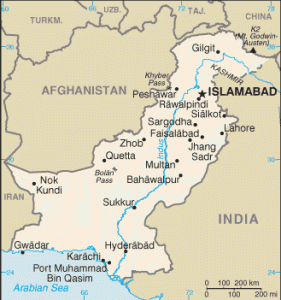 FARZANA ALI: It is basically a woman reporter’s catharsis. It’s the kind of issues I have reported on and what my feelings are. You may say it’s a fiction book based on true stories. I wanted to write down the feelings and the inner burnings of women in this age of suffocation in our society and what their emotions are as well as their thoughts.
FARZANA ALI: It is basically a woman reporter’s catharsis. It’s the kind of issues I have reported on and what my feelings are. You may say it’s a fiction book based on true stories. I wanted to write down the feelings and the inner burnings of women in this age of suffocation in our society and what their emotions are as well as their thoughts.
Whether I live or die, I will leave some of the images for the next generation. I have planned to distribute all the money among some of the families and the women that have been affected during the war on terror. I will open a separate account for the money I get through this book for an independent monitoring committee to look after it.
I know a few of the families of the actual characters of my book. I have planned to establish a separate fund for women victims of Khyber Pakhtoonkhwa and the tribal areas.
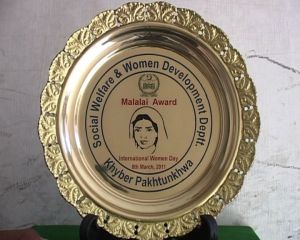
EYE: You’ve written hundreds of articles on women’s issues. What are the ones of most concern to women where you live?
FARZANA ALI: The status of women in Pashtoon society is to me the most alarming issue. After that, women trafficking, honour killing, the exploitation of women in the war on terror, and financial issues. When extremism is at its peak, I think women are the softest target.
EYE: You say Pakistan has become a living hell. What will it take for the country to change?
FARZANA ALI: Not only me but to all who live here I say this. I have learned while reporting in Swat that a women can change a heaven into hell and a hell into heaven. Give this nation an educated, enlightened, and financially capable mother, and you will get the desired result. Eradicate extremism in the lap of a mother.
We need to produce a well-hearted and broadminded mother so she will give forth a progressive and human-centric child who is unbiased towards any religion.
EYE: What is your most important goal now?
FARZANA ALI: To complete my book, help those affected by war, and connect to global women starting from my own home region.
EYE: Thank you so much for sending us your email. We think it’s important to connect with women in your region. Please stay in touch and be safe!
Farzana’s Website: http://hotfrontiers.com


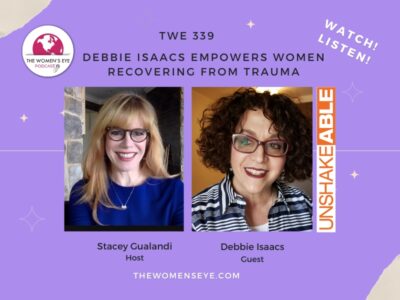
Leave a Reply